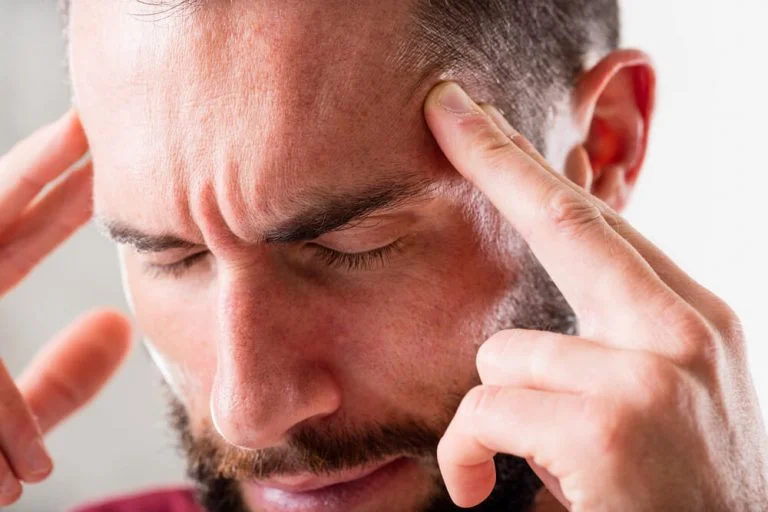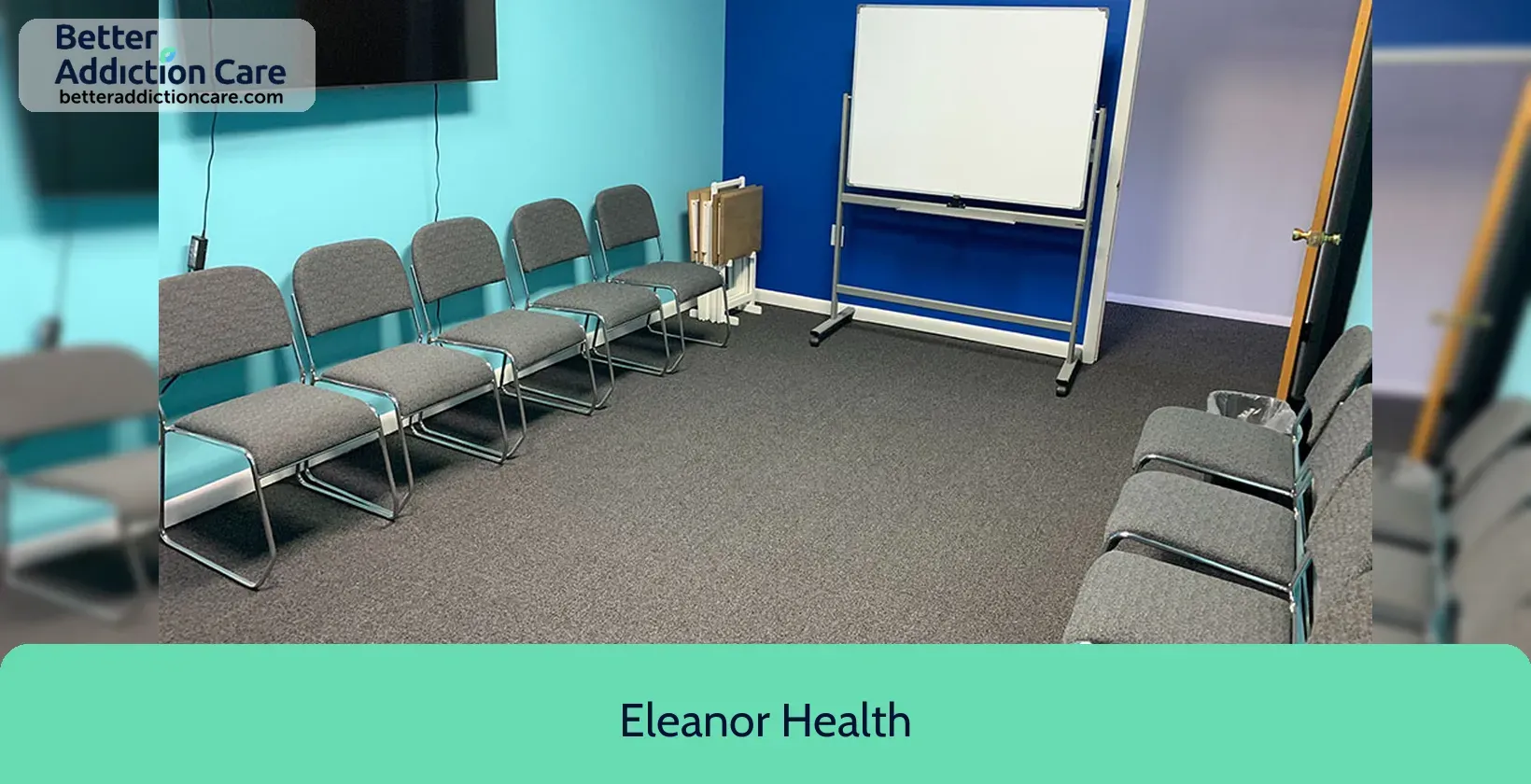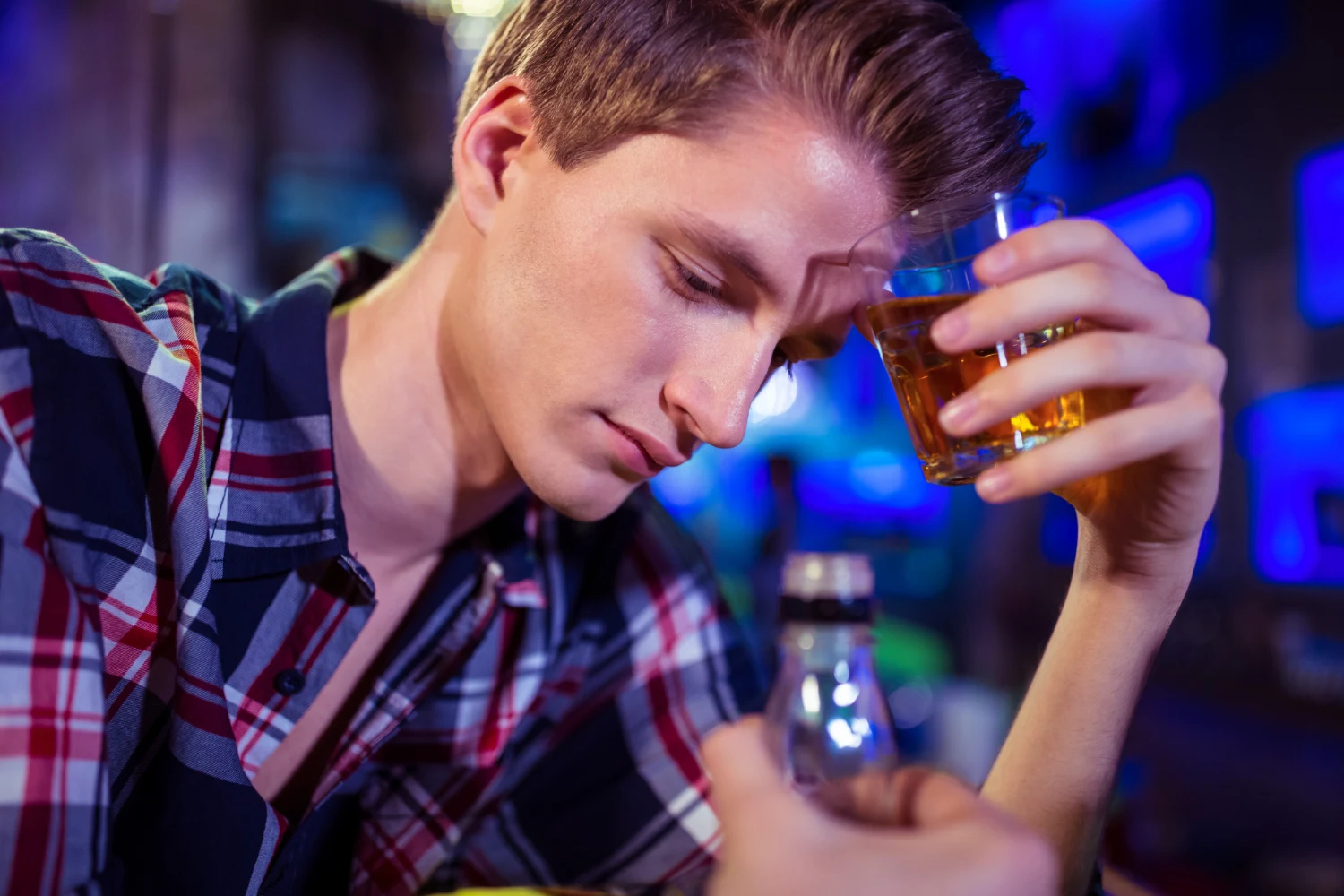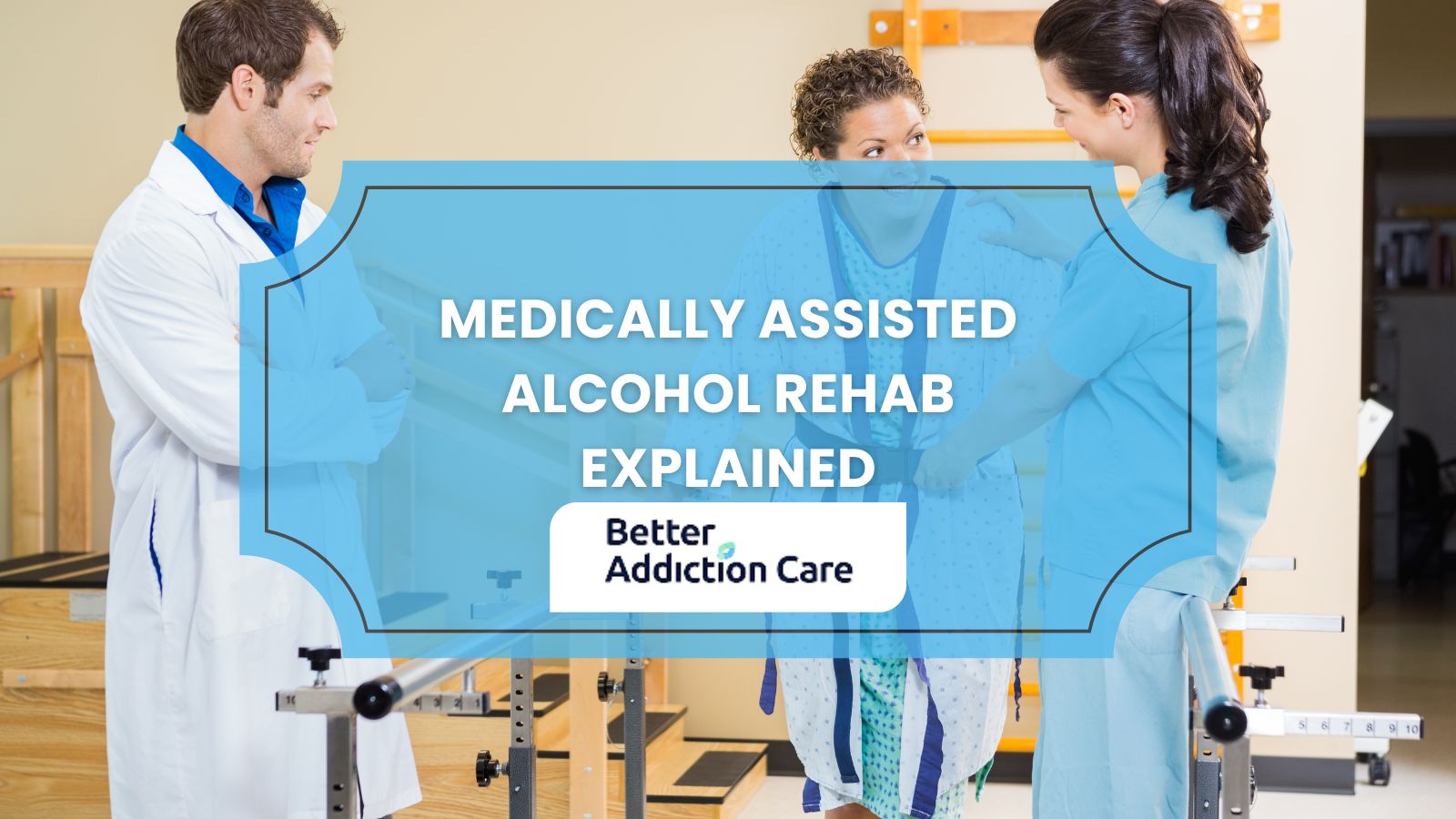Understanding Alcohol Withdrawal Timeline
If you're struggling with alcohol addiction and contemplating quitting, you're not alone. The road to recovery can seem daunting, especially with fears and questions about alcohol withdrawal. This guide provides clear, supportive, and practical information to help you understand what to expect and how to manage this challenging process.

What is Alcohol Withdrawal?
Alcohol use disorder (AUD), commonly referred to as alcoholism, is a serious condition. Despite the repercussions of their drinking, people with AUD find it difficult to restrain themselves from doing so, and that’s the key point where people understand there’s a dependence, which can be both physical and psychological.
Acknowledging Addiction and Beginning the Process
The first step to rehabilitation is frequently admitting you have a problem. This might be a challenging but necessary initial step. After you understand you have an addiction, you may be wondering when is the right time to seek addiction treatment. How will the course of therapy unfold?
Understanding Withdrawal
When someone drinks alcohol heavily for a long time, their body gets used to having alcohol in the system. If they suddenly stop drinking or greatly reduce their alcohol intake, the body has to adjust to not having alcohol anymore. This adjustment period is called alcohol withdrawal syndrome.
Why Withdrawal Happens
Withdrawal happens because alcohol is a depressant that slows down the nervous system. The body compensates for the regular presence of alcohol by becoming more stimulated. But when the alcohol is removed, the nervous system is overactive without the depressant effects of alcohol to balance it out. This overstimulation causes physical and psychological withdrawal symptoms to occur.
In essence, withdrawal is the body's reaction to the absence of a substance it has adapted to having consistently. Stopping alcohol abruptly after heavy, prolonged use forces the body to recalibrate, leading to an unpleasant process of readjustment.
Alcoholism, also known as alcohol use disorder (AUD), is a chronic condition characterized by an inability to control or stop drinking despite negative consequences. It involves both a physical and psychological dependence on alcohol.
When someone stops drinking alcohol after a period of heavy use, their body can go through a series of changes as it adjusts to the absence of alcohol. This adjustment period is what we call the alcohol withdrawal syndrome timeline.
The timeline of alcohol withdrawal often begins with recognizing an addiction.
This realization leads to the critical decision to seek treatment, which raises many important questions: When is the right time for treating alcohol problems? What can one expect from the process?
Understanding these aspects is essential for mentally and physically preparing for the road to recovery. Knowing the symptoms, treatment options, and available support can make this challenging journey more manageable and successful.
Alcohol withdrawal occurs when individuals who have an alcohol addiction for a prolonged period suddenly reduce or stop their intake. The brain and body, having adapted to the presence of alcohol, react to its sudden absence, leading to a range of physical and psychological symptoms. This reaction happens because alcohol depresses the central nervous system; when its effects wear off, the body becomes overexcited, resulting in withdrawal symptoms.
Duration of Alcohol Withdrawal
|
Time Since Last Drink |
Stage |
Symptoms |
|
0-6 Hours |
Initial Symptoms |
Mild anxiety, irritability, tremors, insomnia, headache, heart palpitations, nausea, vomiting, diarrhea |
|
6-12 Hours |
Escalation of Symptoms |
More pronounced tremors, sweating, anxiety, restlessness, appetite loss, difficulty thinking clearly, mild hallucinations (often visual), sensitivity to light and sound |
|
12-24 Hours |
Acute Withdrawal Phase |
Increased tremors, sweating, nausea, vomiting, heightened anxiety, irritability, visual, auditory, and tactile hallucinations (may not be severe), persistent insomnia, nightmares |
|
24-48 Hours |
Peak of Acute Symptoms |
Intense anxiety, severe tremors, profuse sweating, high blood pressure, rapid heart rate, more vivid hallucinations, risk of seizures (usually generalized tonic-clonic) |
|
48-72 Hours |
Potential for Delirium Tremens (DTs) |
Severe confusion, agitation, irritability, severe visual and auditory hallucinations, high fever, rapid heart rate, high blood pressure, severe sweating, additional seizures, fluctuating consciousness, potential for cardiovascular complications |
|
72 Hours - 1 Week |
Gradual Improvement |
Most severe symptoms subside (hallucinations, seizures), anxiety, insomnia, mild tremors, and mood swings may persist |
|
1 Week - 1 Month |
Post-Acute Withdrawal Syndrome (PAWS) |
Sleep disturbances, fatigue, mood swings, anxiety, irritability, difficulty concentrating, cravings for alcohol |
|
1 Month - 3 Months |
Continued Recovery |
Improvements in mood, cognitive function (anxiety, depression may linger), overall physical health (sleep, energy levels), occasional cravings (less intense/frequent) |
|
3 Months - 1 Year |
Long-Term Recovery |
Most withdrawal symptoms improve/resolve, ongoing improvement in emotional stability and mood, continued efforts to maintain sobriety and healthy lifestyle changes, residual symptoms (PAWS) possible. |
What are the risk factors for alcohol withdrawal?
Alcohol withdrawal is a personal experience influenced by your body chemistry and alcohol tolerance. Plus, age can be a factor, with older people sometimes having a harder time.
If you have other health issues, whether physical or mental, withdrawal symptoms can get worse. For example, brain problems and liver issues can make things tougher. Also, the medication you take and whether you use other substances with alcohol can affect how withdrawal feels. Even simple things like dehydration or low electrolytes can make withdrawal symptoms more intense.
Managing Alcohol Withdrawal Symptoms
Let's break down the steps you must take to navigate this process, providing you with all the necessary insights and tips.
Get professional medical help
First, it's crucial to get professional medical help. Alcohol withdrawal can lead to severe symptoms and, in extreme cases, even death. That's why having medical supervision is very important. A healthcare provider can monitor your condition, administer medications to manage symptoms, and ensure your safety. Depending on your symptoms' severity and overall health, they may suggest treatment in a hospital or outpatient setting.
Join a support group
Next, think about joining a support group. Whether you choose an online group or attend meetings in person, connecting with others who have experienced alcohol withdrawal can provide invaluable support. These groups offer a sense of community, advice from people who understand what you're going through, and encouragement to help you stay on course. Connecting with others who understand your experience can help you feel less alone and motivate you.
Stay hydrated
It's crucial to stay well-hydrated during withdrawal because alcohol dehydrates your body, and withdrawal symptoms can make this worse. Drink plenty of fluids, especially those with electrolytes like sports drinks or rehydration solutions. These can help maintain your body's balance and lessen some of the symptoms associated with withdrawal.
Eat healthy
Eating a diet high in nutrients is also essential. Your body loses essential nutrients after drinking alcohol. Therefore, it's important to resupply them to aid in your recuperation. Pay attention to foods high in proteins, minerals, and vitamins.
Fresh fruits and vegetables, lean meats, whole grains, and dairy products can provide the nutrients your body needs. Even if you don't feel hungry, try to eat small, healthy meals throughout the day.
Exercise
After surviving the toughest part of withdrawal, some light exercise can really help you feel better. Something gentle like going for a walk, doing some stretches, or trying a yoga class can work wonders by releasing those feel-good endorphins that give your body and mind a nice little boost.
Relax your mind and body
Alcohol withdrawal isn't merely a physical challenge; it also takes an emotional toll. The fluctuations in mood and anxiety can feel like an emotional rollercoaster. That's why it's crucial to include relaxation methods during this period. Easy practices like deep breathing exercises, meditation, or soothing music can be therapeutic. These techniques allow your mind to reset from the rapid, anxious thoughts that can swiftly overwhelm you. Short breaks to unwind can make a substantial difference in smoothing withdrawal's emotional highs and lows.
Medical Treatment Options for Alcohol Withdrawal
When someone is trying to stop drinking alcohol, doctors will typically prescribe medications called benzodiazepines. Drugs like Valium, Ativan, and Librium. These medications are very effective for reducing anxiety, preventing seizures, and alleviating other difficult withdrawal symptoms. They work by calming the overactive nervous system that occurs during withdrawal.
However, benzodiazepines are not the only medications used. If seizures are a concern, anti-seizure medications like Tegretol or Depakote may be prescribed. Beta-blockers such as Inderal or Tenormin can help with physical symptoms like rapid heartbeat and high blood pressure. Clonidine, which reduces the activity of the sympathetic nervous system, can also help with symptoms like sweating, tremors, and anxiety.
Long-term alcohol use can severely deplete essential nutrients in the body. So doctors will likely recommend supplements like thiamine (vitamin B1), folic acid, and multivitamins. Thiamine is especially important because a deficiency can lead to severe brain and nerve complications like Wernicke-Korsakoff syndrome.
Once through the initial withdrawal phase, pharmacological therapy specifically for alcohol dependence may be introduced to reduce cravings and support long-term sobriety. Examples are Vivitrol, which blocks the pleasurable effects of alcohol; Campral, which helps restore brain chemistry; and Antabuse, which causes unpleasant reactions if alcohol is consumed as a deterrent.
For individuals with severe withdrawals, hospitalization or an inpatient detox facility may be necessary for around-the-clock monitoring and management of severe symptoms for safer detoxification.
Doctors may also recommend non-drug therapies like cognitive-behavioral therapy or counseling. These address the psychological aspects of alcohol dependence and provide strategies for coping with cravings and avoiding relapse.
Related Articles
Treatment Centers in New Jersey
 123
123
 123
123
 123
123





